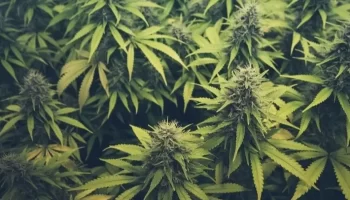The coffee industry faces significant challenges regarding fair labour practices and environmental sustainability. Behind every morning cup exists a complex supply chain affecting millions of farmers worldwide. Increasing consumers seek ways to ensure their daily ritual supports positive practices rather than contributing to problematic systems. Understanding what makes coffee ethically sourced empowers buyers to make informed decisions aligned with their values.
What defines ethical sourcing in coffee? – Ethical sourcing encompasses multiple interconnected factors beyond simple price points. Proper ethical practices address both human and environmental considerations throughout the production process. When examining coffee sourcing practices, several key elements indicate a genuine commitment to moral standards.
Fair compensation forms the foundation of ethical trading relationships. Coffee prices fluctuate dramatically in global markets, often dropping below production costs. Ethical sourcing models establish minimum price floors ensuring farmers receive living wages regardless of market volatility. These guarantees provide crucial financial stability allowing producers to plan effectively for future harvests.
Recognizing meaningful certifications
Various certification systems help identify coffee beans that are ethically sourced according to established standards. While imperfect, these third-party verifications provide helpful guidance for consumers navigating complex purchasing decisions.
Fair Trade certification focuses primarily on economic relationships between buyers and producers. Certified products guarantee minimum prices plus community development premiums reinvested in local projects. Regular audits verify compliance with labour standards prohibiting exploitation and child labour. This certification emphasizes cooperative structures giving farmers collective bargaining power.
Rainforest Alliance certification emphasizes environmental criteria alongside social considerations. Farms meeting these standards implement comprehensive ecosystem management practices protecting wildlife habitat and water resources. Worker welfare requirements include safe working conditions, fair wages, and access to education. The organization’s green frog seal indicates compliance with these multifaceted standards.
Assessing packaging claims critically
Coffee packaging often features ethical-sounding terminology without substantive practices behind the words. Learning to distinguish meaningful claims from marketing language helps consumers direct purchasing power effectively.
Vague terms like “sustainably sourced” or “responsibly grown” warrant scepticism without explaining practically what these phrases mean. Ethical companies typically provide concrete details about their sourcing practices rather than relying on undefined terminology. Look for specific information about farm relationships, price structures, or environmental initiatives backing these claims.
Finding reliable suppliers
Speciality coffee roasters often lead the industry in ethical sourcing practices. Their business models typically emphasize quality over volume, aligning naturally with sustainable production methods. Many develop direct relationships with producers, visiting farms regularly to verify conditions firsthand. These relationships foster mutual accountability benefiting everyone in the supply chain.
Local roasters frequently provide the most transparent information about their sourcing practices. Direct conversations with staff often reveal details about farm relationships that do not fit on the packaging. Many eagerly share their sourcing philosophy and specific efforts supporting producer communities. These personal connections make accountability impossible in anonymous supply chains.
Conscious consumption habits complete the ethical circle. Using exactly what you need prevents waste while maximizing the impact of your purchasing decisions. This mindfulness extends ethical production principles into your daily practice, creating consistency between values and actions. Our choices about morning coffee may seem small, but collectively, they significantly impact global supply chains. By learning to identify Coffee Beans Ethically Sourced adjusting purchasing habits accordingly, consumers become potent advocates for positive change throughout the coffee industry.





